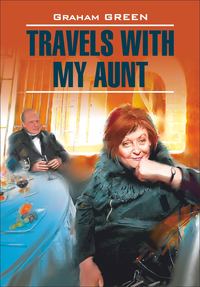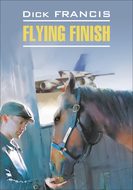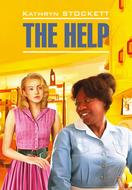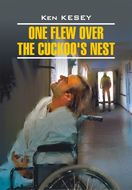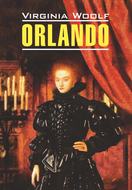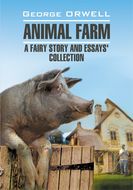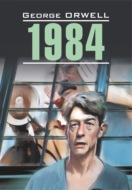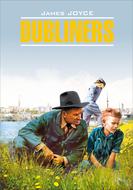Kitabı oku: «Travels with my aunt / Путешествие с тетушкой. Книга для чтения на английском языке», sayfa 2
“It’s a bloody lot of trouble,” Wordsworth said. “Stay there.”
I was prepared to be very cold to him when he brought the parcel, but he opened the street door wearing a friendly grin25.
“Thank you,” I said, with as much coldness as I could muster, “for the great trouble you have taken.”
I noticed that the parcel was no longer sealed. “Has somebody opened this?”
“Ar jus wan to see what you got there.”
“You might have asked me.”
“Why, man,” he said, “you not offended at Wordsworth?”
“I didn’t like the way you spoke just now.”
“Man, it’s jus that little mike there. Ar wan to make it say all kind of rude things. There ar am up there, and down there ma voice is, popping out into the street where no one see it’s only old Wordsworth. It’s a sort of power, man. Like the burning bush when he spoke to old Moses.
One day it was the parson come from Saint George’s in the square. An he says in a dear brethren sort of voice, ‘I wonder, Miss Bertram, if I could come up and have a little chat about our bazaar.’ ‘Sure, man,’ ar say, ‘you wearing your dog collar?’ ‘Why, yes,’ he say, ‘of course, who is that?’ ‘Man,’ ar say, ‘you better put on a muzzle too before you go come up here.’”
“What did he say?”
“He wen away and never come back. Your auntie laugh like hell when ar told her. But ar didn’t mean him harm. It was just old Wordsworth tempted by that little old mike.”
“Are you really studying for the London School of Economics?” I asked.
“Oh, tha’s a joke your auntie makes. Ar was workin at the Grenada Palace. Ar had a uniform. Jus lak a general. She lak ma uniform. She stop an say, ‘Are you the Emperor Jones?’ ‘No, ma’am,’ I say, ‘arm only old Wordsworth.’ ‘Oh,’ she say, ‘thou child of joy, shout round me, let me hear thy shouts, thou happy shepherd boy.’ ‘You write that down for me,’ ar say ‘it sound good. Ar like it.’ Ar say it over and over. Ar know it now good lack a hymn.”
I was a little confused by his garrulity. “Well, Wordsworth,” I said, “thank you for all your trouble and I hope one day I shall see you again.”
“This here mighty important parcel?”
“Yes. I suppose it is.”
“Then ar think you owe a dash to old Wordsworth,” he said.
“A dash?”
“A CTC.”
Remembering what my aunt had told me, I went quickly away.
Just as I had expected, my new lawn-mower was wet all over: I dried it carefully and oiled the blades before I did anything else. Then I boiled myself two eggs and made a cup of tea for lunch. I had much to think about. Could I accept my aunt’s story and in that case who was my mother? I tried to remember the friends my mother had of her own age, but what was the good of that? The friendship would have been broken before my birth. If indeed she had been only a stepmother to me, did I still want to place her ashes among my dahlias? While I washed up my lunch I was sorely tempted to wash out the urn as well into the sink. It would serve very well for the home-made jam which I was promising myself to make next year – a man in retirement must have his hobbies if he is not to age too fast26 – and the urn would have looked quite handsome on the tea table. It was a little sombre, but a sombre jar was well suited for damson jelly or for blackberry-and-apple jam. I was seriously tempted, but I remembered how kind my stepmother had been to me in her rather stern way when I was a child, and how could I tell that my aunt was speaking the truth? So I went out into the garden and chose a spot among the dahlias where the plinth could be built.
Chapter 4
I was weeding the dahlias, the Polar Beauties and the Golden Leaders and the Requiems, when my telephone began to ring.
Being unused to the sound which shattered all the peace of my little garden, I assumed that it was a wrong number27. I had very few friends, although before my retirement I boasted a great many acquaintances. There were clients who had stayed with me for twenty years, who had known me in the same branch as clerk, cashier and manager, and yet they remained acquaintances. It is rare for a manager to be promoted from the staff of a branch in which he will have to exercise authority, but there were special circumstances in my case. I had been acting manager for nearly a year owing to my predecessor’s illness, and one of my clients was a very important depositor who had taken a fancy to me. He threatened to remove his custom if I did not remain in charge. His name was Sir Alfred Keene: he had made a fortune in cement, and my father having been a builder gave us an interest in common. He would invite me to dinner at least three times a year and he always consulted me on his investments, though he never took my advice. He said it helped him to make up his mind. He had an unmarried daughter called Barbara, who was interested in tatting, which I think she must have given to the church bazaar. She was always very kind to me, and my mother suggested I might pay her attentions, for she would certainly inherit Sir Alfred’s money, but the motive seemed to me a dishonest one and in my case I have never been greatly interested in women. The bank was then my whole life, and now there were my dahlias.
Unfortunately Sir Alfred died a little before my retirement, and Miss Keene went to South Africa to live. I was intimately concerned, of course, with all her currency difficulties: it was I who wrote to the Bank of England for this permit or that and reminded them constantly that I had received no reply to my letters of the 9th ult.28; and on her last night in England, before she caught her boat at Southampton, she asked me to dinner. It was a sad occasion without Sir Alfred, who had been a very jovial man, laughing immoderately even at his own jokes. Miss Keene asked me to look after the drinks and I chose an Amontillado, and for dinner Sir Alfred’s favourite Chambertin. The house was one of those big Southwood mansions surrounded by rhododendron bushes which dripped that night with the steady slow November rain. There was an oil painting of a fishing boat in a storm after Van de Velde over Sir Alfred’s place at the dining-room table, and I expressed the hope that Miss Keene’s voyage would be less turbulent.
“I have sold the house as it stands with all the furniture,” she told me. “I shall live with second cousins.”
“Do you know them well?” I asked.
“I have never seen them,” she said. “They are once removed29. We have only exchanged letters. The stamps are like foreign stamps. With no portrait of the Queen.30”
“You will have the sun,” I encouraged her.
“Do you know South Africa?”
“I have seldom been out of England,” I said. “Once when I was a young man I went with a school friend to Spain, but my stomach was upset by the shell-fish – or perhaps it was the oil.”
“My father was a very overpowering personality,” she said. “I never had friends – except you, of course, Mr. Pulling.”
It is astonishing to me now how nearly I came to proposing marriage that night and yet I refrained. Our interests were different, of course – tatting and dahlias have nothing in common, unless perhaps they are both the interests of rather lonely people. Rumours of the great bank merger had already reached me. My retirement was imminent, and I was well aware that the friendships I had made with my other clients would not long survive it. If I had spoken would she have accepted me? – it was quite possible. Our ages were suitable, she was approaching forty and I would soon be halfway through the fifth decade, and I knew my mother would have approved. How different everything might have been if I had spoken then. I would never have heard the disturbing story of my birth, for she would have accompanied me to the funeral and my aunt would not have spoken in her presence. I would never have travelled with my aunt. I would have been saved from much, though I suppose I would have missed much too. Miss Keene said, “I shall be living near Kofiefontein.”
“Where is that?”
“I don’t really know. Listen. It’s raining cats and dogs.31”
We got up and moved into the drawing-room for coffee. There was a Venetian scene copied from Canaletto32 on the wall. All the pictures in the house seemed to represent foreign parts, and she was leaving for Kofiefontein. I would never travel so far, I thought then, and I wished that she was staying here, in Southwood.
“It seems a very long way to go,” I said.
“If there was anything to keep me here… Will you take one lump or two?”
“No sugar, thank you.” Was it an invitation for me to speak? I have always asked myself since. I didn’t love her, and she certainly didn’t love me, but perhaps in a way we could have made a life together. I heard from her a year later; she wrote, “Dear Mr. Pulling, I wonder how Southwood is and whether it’s raining. We are having a beautiful sunny winter. My cousins have a small (!) farm of ten thousand acres and they think nothing of driving seven hundred miles to buy a ram. I am not quite used to things yet and I think often of Southwood. How are the dahlias? I have given up tatting. We lead a very open-air existence.”
I replied and gave her what news I could, but I had retired by then and was no longer at the centre of Southwood life. I told her of my mother’s failing health and how the dahlias were doing. There was a rather gloomy variety in royal purple called Deuil du Roy Albert which had not been a success. I was not sorry. It was an odd name to give a flower. My Ben Hurs were flourishing.
I had neglected the telephone, feeling so sure that it was a wrong number, but when the ringing persisted, I left my dahlias and went in.
The telephone stood on the filing cabinet where I keep my accounts and all the correspondence which my mother’s death caused. I had not received as many letters as I was receiving now since I ceased to be manager: the solicitor’s letters, letters from the undertaker, from the Inland Revenue33, the crematorium fees, the doctor’s bills, National Health forms, even a few letters of condolence. I could almost believe myself a business-man again.
My aunt’s voice said, “You are very slow to answer.”
“I was busy in the garden.”
“How was the mowing-machine, by the way?”
“Very wet, but no irreparable damage.”
“I have an extraordinary story to fell you,” my aunt said. “I have been raided by the police.”
“Raided… by the police?”
“Yes, you must listen carefully for they may call on you.”
“What on earth for?”
“You still have your mother’s ashes?”
“Of course.”
“Because they want to see them. They may even want to analyse them.”
“But Aunt Augusta… you must tell me exactly what happened.”
“I am trying to, but you continually interrupt with unhelpful exclamations. It was midnight and Wordsworth and I had gone to bed. Luckily I was wearing my best nightdress. They rang the bell down below and told us through the microphone that they were police officers and had a warrant to search the flat. ‘What for?’ I asked. Do you know, for a moment I thought it might be something racial. There are so many rules now for races and against races that you don’t know where you stand.”
“Are you sure they were police officers?”
“Of course, I asked to see their warrant, but do you know what a warrant looks like? For all I know it might have been a reader’s ticket to the British Museum library. I let them in, though, because they were polite, and one of them, the one in uniform, was tall and good-looking. They were rather surprised by Wordsworth – or perhaps it was the colour of his pyjamas. They said, ‘Is this your husband, ma’am?’ I said, ‘No, this is Wordsworth.’ The name seemed to ring a bell34 with one of them – the young man in uniform – who kept on glancing at him surreptitiously, as though he were trying to remember.”
“But what were they looking for?”
“They said they had reliable information that drugs were kept on the premises.”
“Oh, Aunt Augusta, you don’t think Wordsworth…”
“Of course not. They took away all the fluff from the seams of his pockets, and then the truth came out. They asked him what was in the brown-paper package which he was seen handing to a man who had been loitering in the street. Poor Wordsworth said he didn’t know, so I chipped in and said it was my sister’s ashes. I don’t know why, but they became suspicious of me at once. The elder, who was in plain clothes35, said, ‘Please don’t be flippant, ma’am. It doesn’t exactly help.’ I said, ‘As far as my sense of humour goes, there is nothing whatever flippant in my dead sister’s ashes.’ ‘A sort of powder, ma’am?’ the younger policeman asked – he was the sharper of the two, the one who thought he knew the name of Wordsworth. ‘You can call it that if you like,’ I said, ‘grey powder, human powder,’ and they looked as though they had won a point. ‘And who was the man who received this powder?’ the man in plain clothes asked. ‘My nephew,’ I said. ‘My sister’s son.’ I saw no reason to go into that old story which I told you yesterday with members of the Metropolitan Police. Then they asked for your address and I gave it to them. The sharp one said, ‘Was the powder for his private use?’ ‘He wants to put it amongst his dahlias,’ I said. They made a very thorough search, especially in Wordsworth’s room, and they took away samples of all the cigarettes they could find, and some aspirins I had left in a cachet box. Then they said, ‘Good night, ma’am,’ very politely and left. Wordsworth had to go downstairs and open the door for them, and just before he left the sharp one said to him, ‘What’s your first name?’ ‘Zachary,’ Wordsworth told him and he went out looking puzzled.”
“What a very strange thing to have happened,” I said.
“They even read some letters and asked who Abdul was.”
“Who was he?”
“Someone I knew a very long time ago. Luckily I had kept the envelope and it was marked Tunis, February, 1924. Otherwise they would have read all sorts of things into it about the present.”
“I am sorry, Aunt Augusta. It must have been a terrifying experience.”
“It was amusing in a way. But it did give me a guilty feeling…”
There was a ring from the front door and I said, “Hold on a moment, Aunt Augusta.” I looked through the dining-room window and saw a policeman’s helmet. I returned and said, “Your friends are here.”
“Already?”
“I’ll ring you back when they’ve gone.”
It was the first time I had ever been called on by the police. There was a short middle-aged man in a soft hat with a rough but kindly face and a broken nose and the tall good-looking young man in uniform.
“Mr. Pulling?” the detective asked.
“Yes.”
“May we come in for a few moments?”
“Have you a warrant?” I asked.
“Oh no, no, it hasn’t come to that. We just want to have a word or two with you.”
I wanted to say something about the Gestapo, but I thought it wiser not. I led them into the dining-room, but I didn’t ask them to sit down. The detective showed me an identity card and I read on it that he was Detective-Sergeant Sparrow, John.
“You know a man called Wordsworth, Mr. Pulling?”
“Yes, he’s a friend of my aunt’s.”
“Did you receive a package from him in the street yesterday?”
“I certainly did.”
“Would you have any objection to our examining the package, Mr. Pulling?”
“I most certainly would.”
“You know, sir, we could easily have obtained a search warrant, but we wanted to do things delicately. Have you known this man Wordsworth a long time?”
“I met him for the first time yesterday.”
“Perhaps, sir, he asked you as a favour to deliver that package and you, seeing no harm at all in that and him being an employee of your aunt…”
“I don’t know what you are talking about. The package is mine. I had accidentally left it in the kitchen.”
“The package is yours, sir? You admit that.”
“You know very well what’s in the package. My aunt told you. It’s an urn with my mother’s ashes.”
“Your aunt has been in communication with you, has she?”
“Yes, she has. What do you expect? Waking up an old lady in the middle of the night.”
“It had only just gone twelve, sir. And so those ashes… They are Mrs. Pulling’s?”
“There they are. You can see for yourself. On the bookcase.” I had put the urn there temporarily, until I was ready to bed it, above a complete set of Sir Walter Scott36 which I had inherited from my father. In his lazy way my father was a great reader, though not an adventurous one. He was satisfied with possessing a very few favourite authors. By the time he had read the set of Scott through he had forgotten the earlier volumes and was content to begin again with Guy Mannering. He had a complete set too of Marion Crawford, and he had a love of nineteenth-century poetry which I have inherited – Tennyson37 and Wordsworth and Browning38 and Palgrave’s39 Golden Treasury.
“Do you mind if I take a look?” the detective asked, but naturally he couldn’t open the urn. “It’s sealed,” he said. “With Scotch tape.”
“Naturally. Even a tin of biscuits…”
“I would like to take a sample for analysis.”
I was becoming rather cross40 by this time. I said, “If you think I am going to let you play around with my poor mother in a police laboratory…”
“I can understand how you feel, sir,” he said, “but we have rather serious evidence to go on. We took some fluff from the man Wordsworth’s pockets and when analysed it contained pot.”
“Pot?”
“Marijuana to you, sir. Likewise Cannabis.”
“Wordsworth’s fluff has got nothing to do with my mother.”
“We could get a warrant, sir, easily enough, but seeing how you may be an innocent dupe, I would rather take the urn away temporarily with your permission. It would sound much better that way in court.”
“You can check with the crematorium. The funeral was only yesterday.”
“We have already, sir, but you see it’s quite possible – don’t think I’m presuming to suggest your line of defence, that’s a matter entirely for your counsel – that the man Wordsworth took out the ashes and substituted pot. He may have known he was being watched. Now wouldn’t it be much better, sir, from all points of view to know for certain that these are your mother’s ashes? Your aunt told us you planned to keep it in your garden – you wouldn’t want to see that urn every day and wonder, Are those really the ashes of the dear departed or are they an illegal supply of marijuana?”
He had a very sympathetic manner, and I really began to see his point41.
“We’d only take out a tiny pinch, sir, less than a teaspoonful. We’d treat the rest with all due reverence.”
“All right,” I said, “take your pinch. I suppose you are only doing your duty.” The young policeman had been making notes all the time.
The detective said, “Take a note that Mr. Pulling behaved most helpfully and that he voluntarily surrendered the urn. That will sound well in court, sir, if the worst happens.”
“When will I get the urn back?”
“Not later than tomorrow – if all is as it should be.” He shook hands quite cordially as if he believed in my innocence, but perhaps that was just his professional manner.
Of course I hastened to telephone to my aunt. “They’ve taken away the urn,” I said. “They think my mother’s ashes are marijuana. Where’s Wordsworth?”
“He went out after breakfast and hasn’t come back.”
“They found marijuana dust in the fluff of his suit.”
“Oh dear, how careless of the poor boy. I thought he was a little disturbed. And he asked for a CTC before he went out.”
“Did you give him one?”
“Well, you know, I’m really very fond of him, and he said it was his birthday. He never had a birthday last year, so I gave him twenty pounds.”
“Twenty pounds! I never keep as much as that in the house.”
“It will get him as far as Paris. He left in time for the Golden Arrow, now I come to think of it, and he always carries his passport to prove he’s not an illegal immigrant. Do you know, Henry, I’ve a great desire for a little sea air myself.”
“You’ll never find him in Paris.”
“I wasn’t thinking of Paris. I was thinking of Istanbul.”
“Istanbul is not on the sea.”
“I think you are wrong. There’s something called the Sea of Marmara.”
“Why Istanbul?”
“I was reminded of it by that letter from Abdul the police found. A strange coincidence. First that letter and then this morning in the post another – the first for a very long time.”
“From Abdul?”
“Yes.”
It was weak of me, but I did not then realize the depth of my aunt’s passion for travel. If I had I would have hesitated before I made the first fatal proposal: “I have nothing particular to do today. If you would like to go to Brighton…”
wearing a friendly grin – (разг.) добродушно ухмыляясь
[Закрыть]
if he is not to age too fast – (разг.) если не хочет быстро стареть
[Закрыть]
it was a wrong number – (зд.) кто-то ошибся номером
[Закрыть]
ult. – (лат.) сокр. от ultimo, этого месяца
[Закрыть]
once removed – (разг.) троюродные
[Закрыть]
With no portrait of the Queen. – Без портрета королевы (на марках стран Британского Содружества всегда в правом верхнем углу есть профиль королевы Британии)
[Закрыть]
It’s raining cats and dogs. – (разг.) На улице льет как из ведра.
[Закрыть]
Canaletto – Антонио Каналетто (1697–1768), итальянский художник
[Закрыть]
the Inland Revenue – правительственная организация, занимающаяся сбором налогов с физических и юридических лиц
[Закрыть]
seemed to ring a bell – (разг.) казалось, звучало знакомо
[Закрыть]
in plain clothes – (разг.) был в штатском
[Закрыть]
a complete set of Sir Walter Scott – (разг.) полное собрание сочинений Вальтера Скотта (1771–1832), шотландского поэта, писателя
[Закрыть]
Tennyson – Альфред Теннисон (1809–1892), английский поэт
[Закрыть]
Browning – Роберт Браунинг (1812–1889), английский поэт
[Закрыть]
Palgrave – Френсис Тернер Полгрейв (1824–1897), английский критик, поэт
[Закрыть]
was becoming rather cross – (разг.) уже начинал злиться
[Закрыть]
began to see his point – (разг.) начал понимать, к чему он клонит
[Закрыть]
